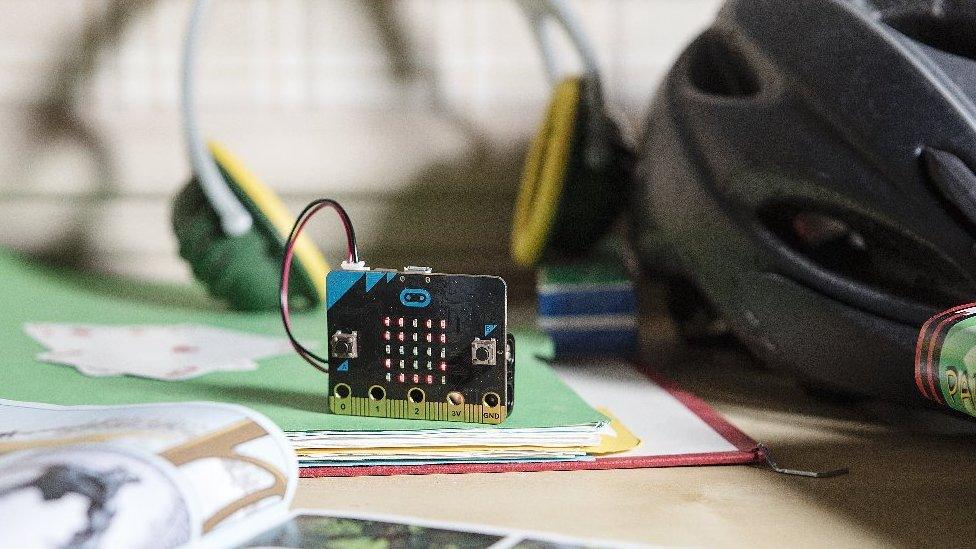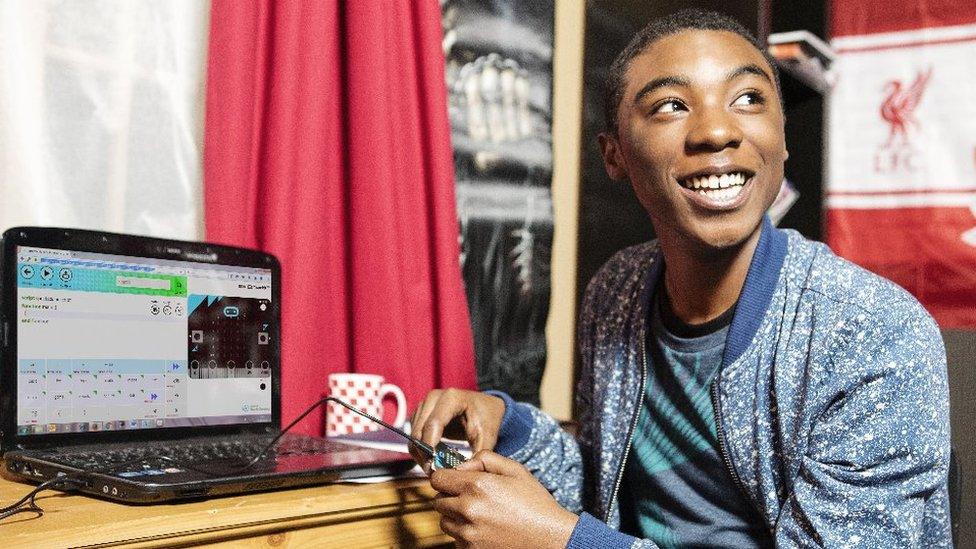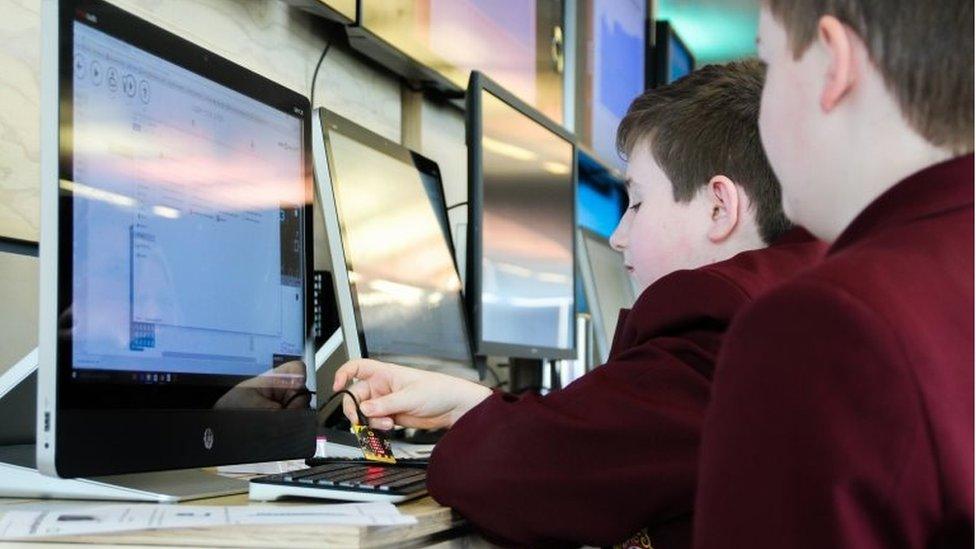Micro Bit computer becomes a commercial product
- Published

The Micro Bit will be more than double the price of the Raspberry Pi Zero mini-computer
The BBC Micro Bit, the tiny computing device designed to get children coding, is going on sale to the general public.
The device is already being delivered, free, to one million Year 7 children in schools across the UK.
Now it will also be available to buy from the various partners in the project for £12.99.
Commercial availability of the Micro Bit follows the signing of a licensing deal with the device's manufacturer, the Leeds-based company, element 14.
The firm says it will only sell them in batches of 90.
But retailers including Microsoft, the Technology Will Save Us organisation and Sciencescope will offer individual devices.

Owners of the Micro Bit can write code for it via a website designed by Microsoft
Element 14 is part of Premier Farnell, one of the distributors of the very successful Raspberry Pi barebones computer. Richard Curtin, strategic alliance director at element 14, is expecting a similar reception for the Micro Bit.
"It's going to be huge," he told me."We've already got a pipeline of orders including foreign governments who've seen what has happened in the UK."
The Micro Bit was meant to be the flagship of the BBC's Make It Digital season last year but suffered a number of delays. It started arriving in schools this spring and the BBC says it has now been delivered to about 80% of schools and roughly 750,000 Year 7 children (11 and 12-year olds).
While I have heard plenty of enthusiasm from those children who have got their hands on it - and there are already plenty of exciting projects on display - there have also been frustrations from teachers.
Rishworth School sent a Micro Bit into the stratosphere
A number have told me that the Micro Bit has arrived far too late in the school year to be of much use - "starting after half term, it's come far too late to get proper use out of it, plus concerns about handling/failures" was one comment this morning.
But another teacher said this: "Got ours just before Easter hols. Kids are loving using them and are even buying add-ons for them, building projects at home etc."
It is late in the year - although the Micro Bits belong to the children who will take them home over the summer holidays.

Until now, only Year 7 schoolchildren in the UK had access to their own Micro Bits
The hope must be that their enthusiasm will continue as they join Year 8 in September, though of course there is a risk that their devices will be lost or broken by then.
The real test, however, will be whether schools and parents decide that the next Year 7 children will benefit from getting their own Micro Bits.
They could decide it is worthwhile investing in the devices now they are going to be available to buy. And there is also the prospect of some being made available for free again.
Element 14 tells me it is paying a licensing fee for the use of the BBC and Micro Bit brands - but that all of that money will be going to a charitable trust with the aim of providing an educational legacy.
WATCH: Could the Mover Kit's rainbow lights teach children to code?
The Micro Bit is entering what is now quite a crowded market for simple educational computing devices.
But if it does prove as good a seller as the Raspberry Pi, then a windfall for the charity could mean more Year 7 children getting their hands on one.
Update:
The BBC told me that the licensing fee paid by Element 14 would in fact go back to the corporation and not a charitable trust.